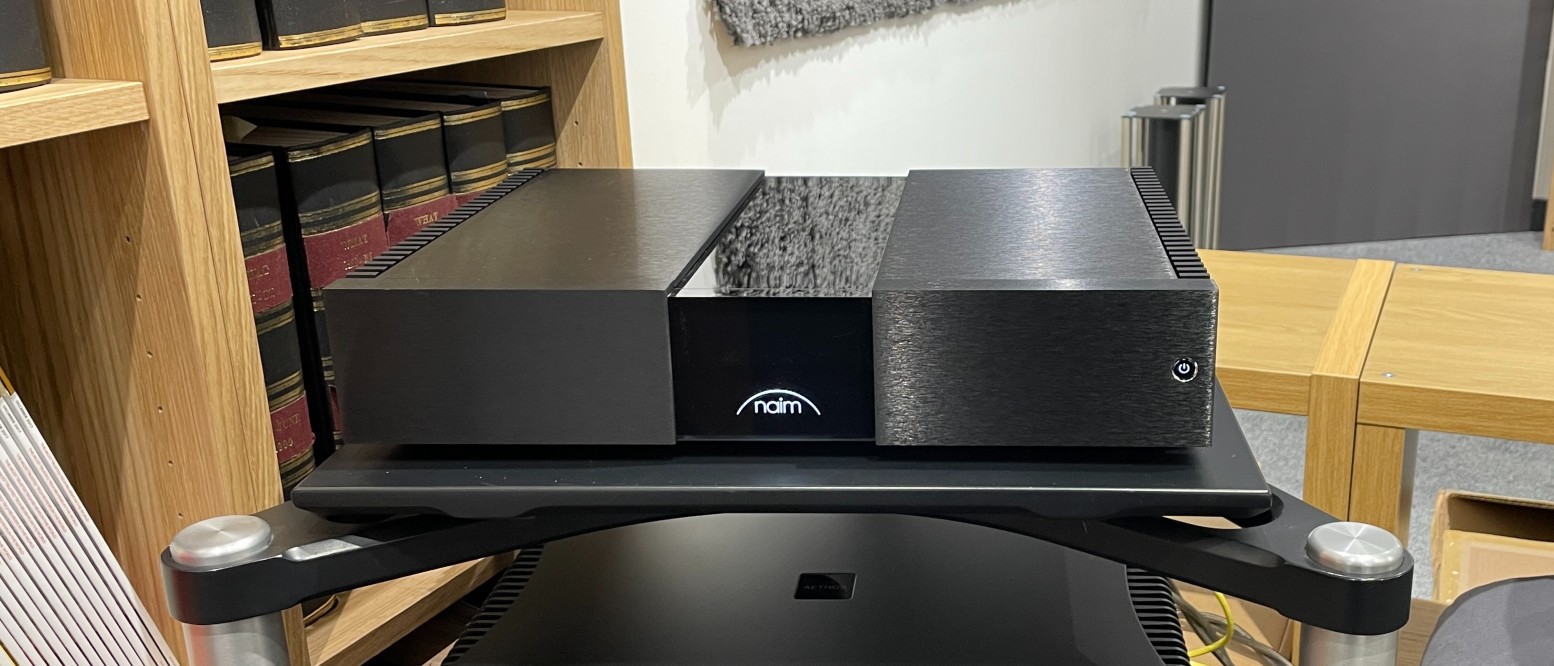
Naim is celebrating its 50th anniversary. Over that time we doubt it has produced anything more iconic than the NAP 250 stereo power amplifier. This product was introduced in 1975, just a couple of years after the company was formed, and somehow managed to encapsulate everything the brand stood for.
The design has not stood still, of course. It has evolved both electrically and cosmetically, starting with Naim’s original ‘chrome bumper’ look through the ‘olive’ phase of the ’90s and into the less distinctive all-black look we’ve had for much of the last couple of decades. This new sixth-generation model does not deviate too much from the established template, but there are enough changes across the board to justify the generational shift.
Build & design
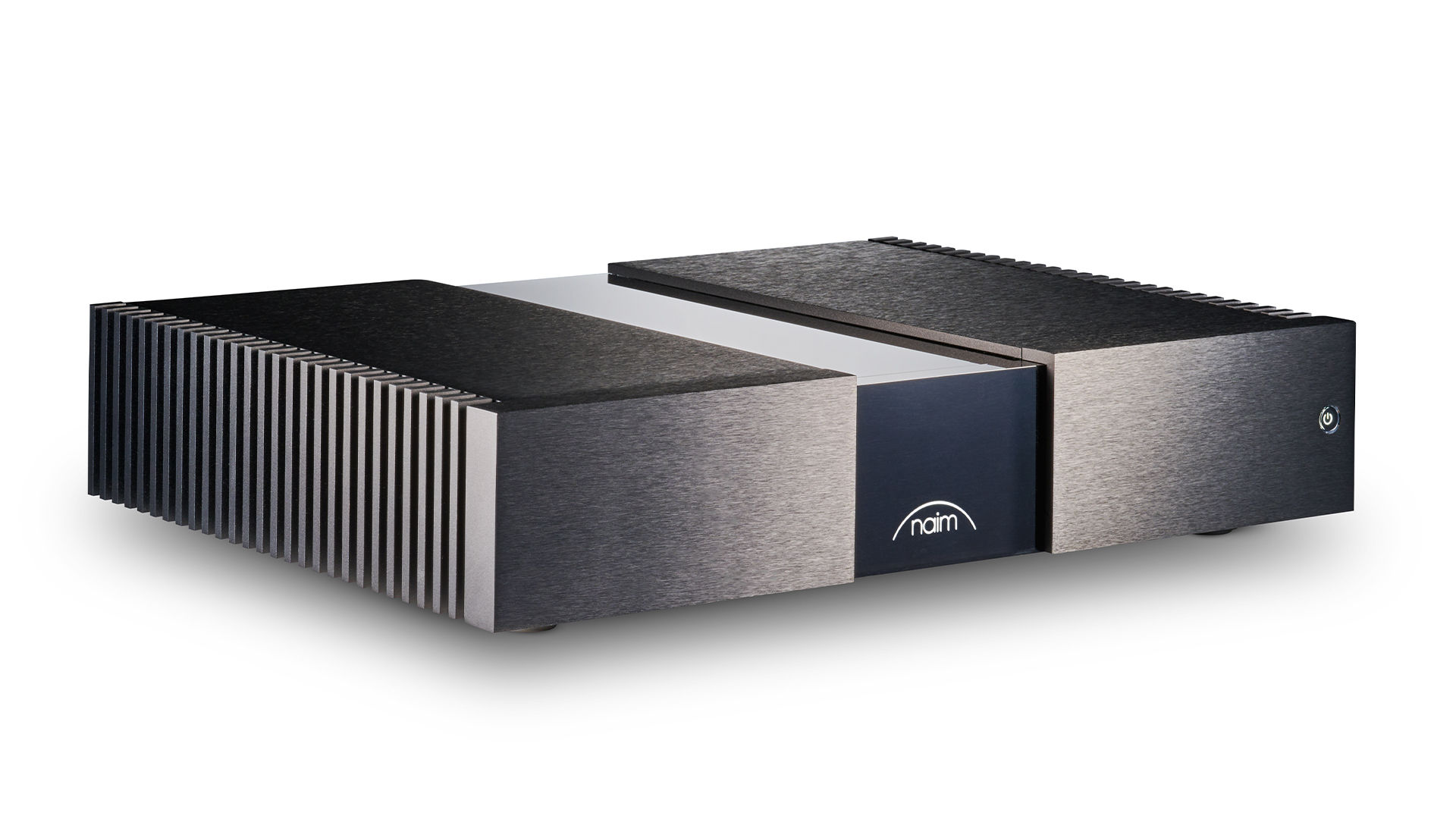
This remains a relatively slim design and still looks unobtrusive against most of the competition, though turn up the newly adjustable brightness on the Naim logo and it will get noticed. A minor point perhaps, but we are not sure how die-hard Naim fans are going to take to the change in the front panel logo illumination colour from traditional green to brilliant white. We don’t mind it.
Take a look inside the NAP 250 and you will find a huge toroidal mains transformer and an impressively sophisticated power supply arrangement. The supply makes generous use of the discrete regulation circuit first developed for Naim’s range-topping Statement amplifiers to ensure an even more stable and low noise power feed.
The amplifier’s audio circuit remains a Class A/B design and uses eight of the company’s custom-designed NA009 output devices. The result is that this sixth-gen model outputs 100 watts per channel into an 8-ohm load and almost doubles that as impedance halves. That healthy output proves enough to get high volume levels from every speaker we connect to the amp. This is something that you can use hard too, given it has a new heatsink arrangement and fan-assisted cooling.
Connections are as sparse as they normally are on products of this type, probably more so. You have balanced XLR inputs, but surprisingly, no sign of stereo RCAs or Naim’s long-favoured DIN sockets. Owners of legacy Naim products can get suitable adaptor cables to get things to work.

Type Stereo power amplifier
Power output 100 watts per channel
Inputs Balanced XLR
Size (hwd) 92 x 432 x 318mm
Weight 16.8kg
The recessed 4mm speaker outputs are standard Naim fare, but in this case, they have slots cut between the positive and negative terminals of each channel to control the flow of eddy currents in the casework. It is a neat touch that shows the attention to detail that the engineers have put into the product, as does the soft-start way the ’250 powers up to avoid tripping any mains circuit breakers. A small point but thoughtful.
Elsewhere on the back, you will find a dual-function button that can toggle between three levels of brightness for the front panel logo light or reset the NAP 250 should it ever need a reboot. There is another switch that governs whether the amplifier stays powered up all the time or just when there is a signal.
Overall, this Naim power amplifier is as well built as the price point demands. It certainly looks more premium than previous generations and feels immensely sturdy. The standard of fit and finish is high and we like the new casework design with its side heatsinks and contrasting centre section.
Sound
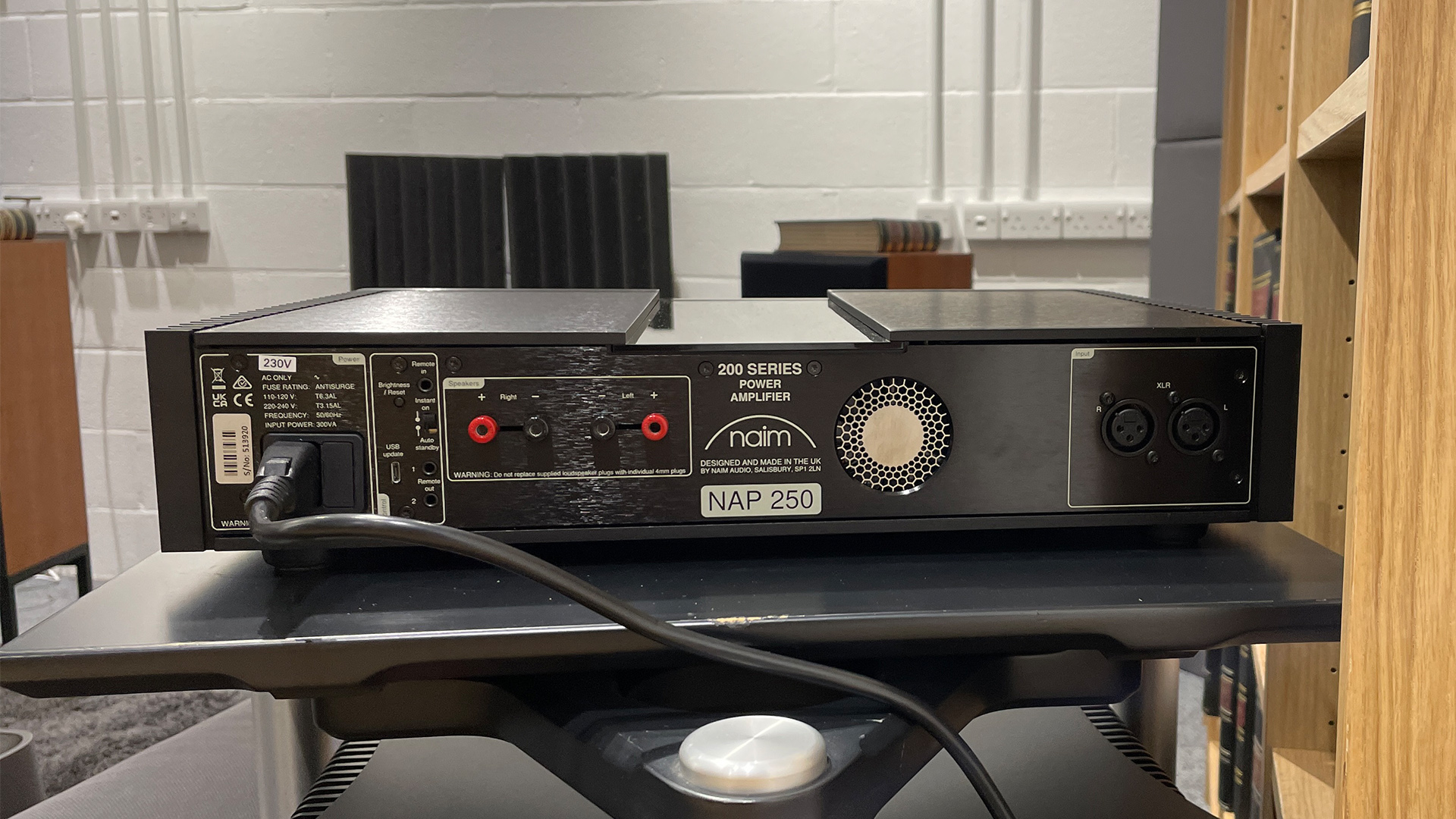
Any power amplifier at this level demands a top-class partnering system to shine. Our main sources are the Technics SL-1000R/Kiseki Purpleheart record player and the Naim ND555/555 PS DR music streamer, both of which feed a Burmester 088 preamp. We also make use of the NAP 250’s sibling, the NSC 222 streaming preamp powered by a NPX 300 outboard power supply. Numerous speakers are used during the test process: the Mission 770, Epos’s ES14N, Wharfedale’s Dovedale, our reference ATC SCM 50 and Wilson Benesch’s A.C.T. 3Zero floorstanding speakers. We use our usual Vertere and Chord cables, as well Naim’s NAC A5 speaker cable.
This rest of this review would have been markedly different if it were based on the first sample of the NAP 250 we tried. That was an early production demo unit that had been doing the rounds. We used that on and off for a few weeks as part of a number of different systems and it sounded fairly uninspiring. Our impressions were of a powerful and controlled amplifier that had no trouble driving a range of speakers, but we also had doubts. Dynamics were not particularly expressive and its way with rhythms was less dexterous than we have come to expect from a Naim product. Concerned, we asked the company for a second sample, and to the brand’s credit, it arrived quickly.
We admit it, we were a little concerned that the second sample would not be any different. Maybe the new 200 series products marked a deliberate shift in the sonic character of Naim’s products as well as the aesthetics? Thankfully, that proves not to be the case. The second sample performed to a far higher standard. High enough to be considered among the very best at its price.
We are inclined to give Naim the benefit of the doubt with that first sample, given it was an early production unit that could have suffered some low-level damage during transit. We have asked the company to investigate and we will update this review when that happens.
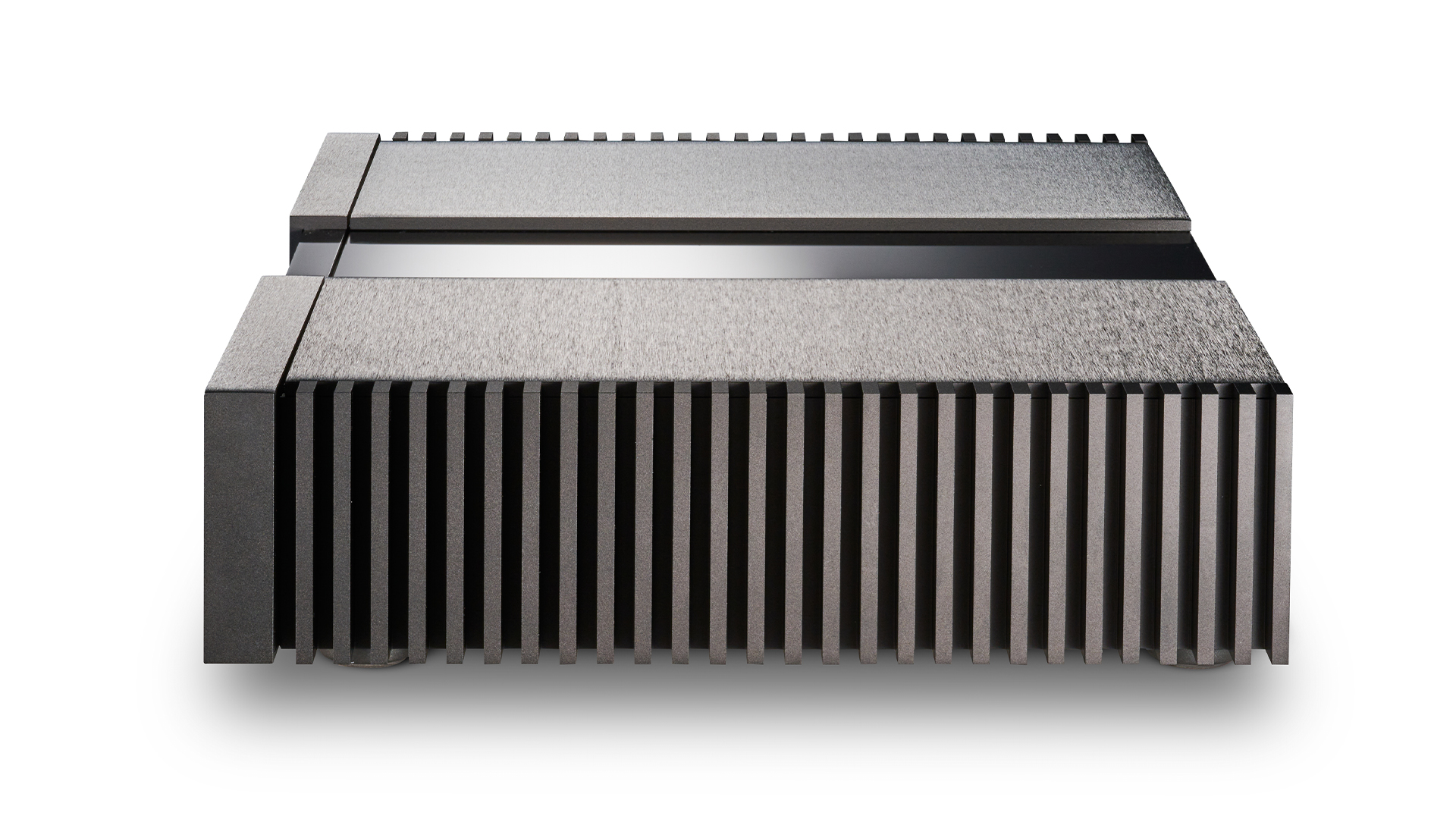
As we continue listening to the replacement NAP 250 it is clear that this new generation design remains an impressively fast and punchy performer. It displays a level of sonic stability and control that is admirable, even at this price. Play something demanding like Stravinsky’s The Rite Of Spring and the power amplifier’s composure is exceptional. It delivers the music’s savage dynamic shifts with enthusiasm; there is no sense of holding back and that makes this product so thrilling to listen to.
Stereo imaging is pretty expansive, which is pleasing as this isn’t an area that the company has traditionally prioritised. The orchestra is layered with care, and the soundstaging stays stable and focused, even when the music gets dense. We love the scale and authority of the Naim’s presentation with this recording. It sounds solid and powerful while still having the skill to deliver the music’s more low-key moments with real finesse.
As is Naim’s way, the NAP 250 is something of a direct, front-footed performer. If you are looking for a rich, warm or relaxing presentation this is not where your money should go. That said, there is more refinement here than we’ve heard from previous generations and a slightly less characterful approach to music replay, which to be clear, is a good thing in a product such as this.
Of course, music such as Bruce Springsteen’s High Hopes set still works a treat on the NAP 250. The amplifier’s many strengths come to the fore. It resolves plenty of detail and is great at organising all that information into a cohesive and musical whole. There is a bountiful supply of energy here and a class-leading sense of rhythmic drive when the music demands. It is a terrifically entertaining listen with bass notes that are punchy, agile and tuneful without dominating the proceedings. Springsteen’s distinctive voice comes through with passion intact, leaving us in no doubt about the emotions he wants us to feel. Overall it is a great performance from the Naim.
Verdict
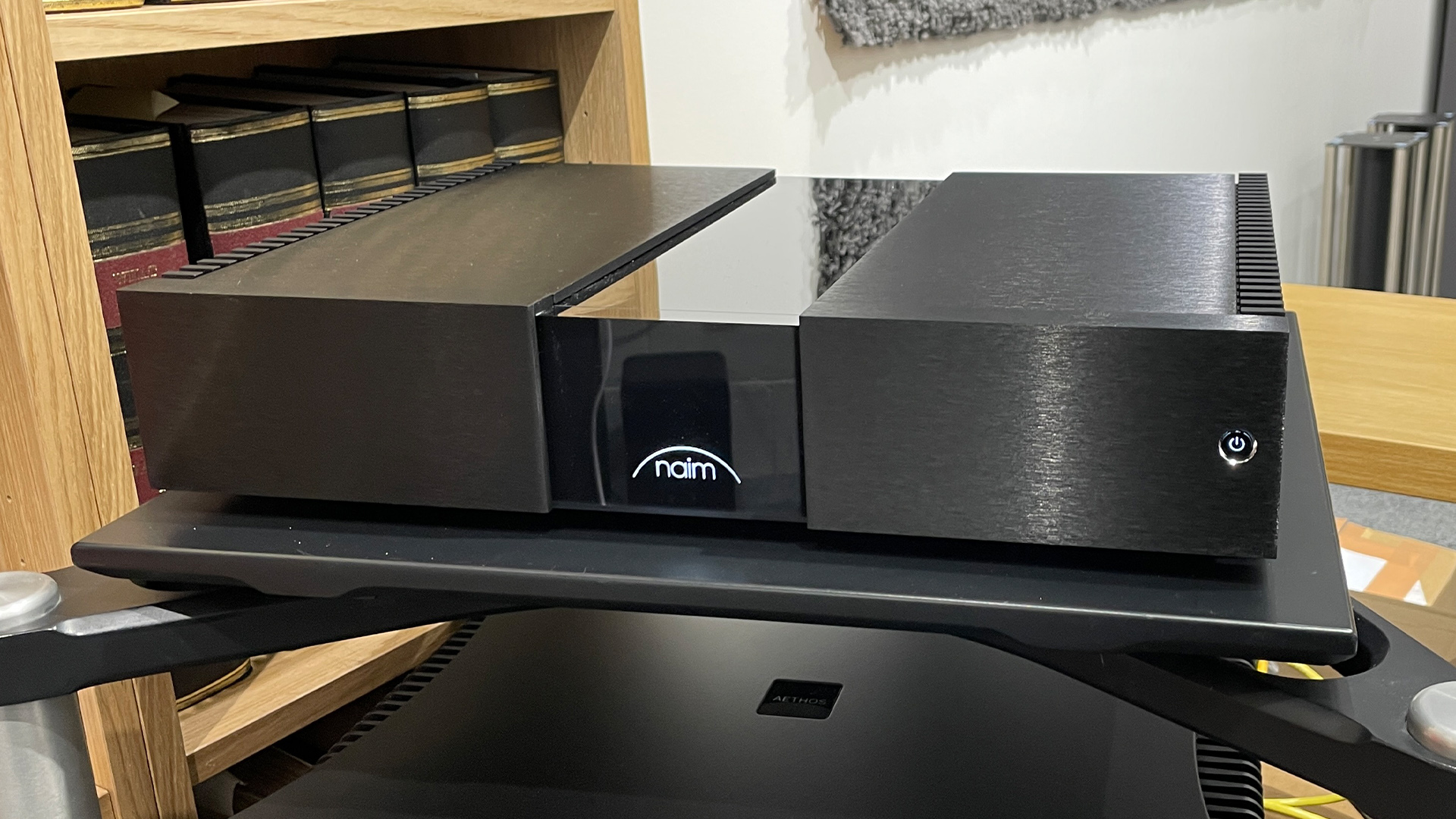
Our time with the second sample proves a real treat. It does everything we would hope for from an amplifier at this level and proves as adept in non-Naim systems as it is when used with its siblings. The new NAP 250 really is a superb all-rounder and comes highly recommended. That enviable legacy is safe for some time yet.
SCORES
- Sound 5
- Build 5
- Compatibility 4
MORE:
Read our review of the Chord Ultima 6 power amplifier
Also consider the Luxman M-700u
Read our Cyrus Mono X Signature review







